- Home
- F. Scott Fitzgerald
The Last Tycoon
The Last Tycoon Read online
The Last Tycoon
F. Scott Fitzgerald
ALMA CLASSICS
Alma Classics ltd
London House
243-253 Lower Mortlake Road
Richmond
Surrey TW9 2LL
United Kingdom
www.almaclassics.com
The Last Tycoon first published in 1941
This edition first published by Alma Books Ltd in 2013
Extra material © Richard Parker
Notes © Alma Classics Ltd
Cover image: George Barbier
Printed and bound by CPI Group (UK) Ltd, Croydon, CR0 4YY
isbn: 978-1-84749-318-7
All the pictures in this volume are reprinted with permission or presumed to be in the public domain. Every effort has been made to ascertain and acknowledge their copyright status, but should there have been any unwitting oversight on our part, we would be happy to rectify the error in subsequent printings.
All rights reserved. No part of this publication may be reproduced, stored in or introduced into a retrieval system, or transmitted, in any form or by any means (electronic, mechanical, photocopying, recording or otherwise), without the prior written permission of the publisher. This book is sold subject to the condition that it shall not be resold, lent, hired out or otherwise circulated without the express prior consent of the publisher.
Contents
The Last Tycoon
Chapter 1
Chapter 2
Chapter 3
Chapter 4
Chapter 5
Chapter 6
Synopsis of Unwritten Chapters
Note on the Text
Notes
Extra Material
F. Scott Fitzgerald’s Life
F. Scott Fitzgerald’s Works
Select Bibliography
Other books by F. SCOTT FITZGERALD
published by Alma Classics
All the Sad Young Men
Basil and Josephine
The Beautiful and Damned
Flappers and Philosophers
The Great Gatsby
The Last Tycoon
The Pat Hobby Stories
Tales of the Jazz Age
Tender Is the Night
This Side of Paradise
The Last Tycoon
Chapter 1
Though I haven’t ever been on the screen I was brought up in pictures. Rudolph Valentino came to my fifth birthday party – or so I was told. I put this down only to indicate that even before the age of reason I was in a position to watch the wheels go round.
I was going to write my memoirs once, The Producer’s Daughter, but at eighteen you never quite get around to anything like that. It’s just as well – it would have been as flat as an old column of Lolly Parsons’s.* My father was in the picture business as another man might be in cotton or steel, and I took it tranquilly. At the worst I accepted Hollywood with the resignation of a ghost assigned to a haunted house. I knew what you were supposed to think about it, but I was obstinately unhorrified.
This is easy to say, but harder to make people understand. When I was at Bennington some of the English teachers who pretended an indifference to Hollywood or its products really hated it. Hated it way down deep as a threat to their existence. Even before that, when I was in a convent, a sweet little nun asked me to get her a script of a screenplay so she could “teach her class about movie-writing”, as she had taught them about the essay and the short story. I got the script for her, and I suppose she puzzled over it and puzzled over it, but it was never mentioned in class, and she gave it back to me with an air of offended surprise and not a single comment. That’s what I half-expect to happen to this story.
You can take Hollywood for granted like I did, or you can dismiss it with the contempt we reserve for what we don’t understand. It can be understood too, but only dimly and in flashes. Not half a dozen men have ever been able to keep the whole equation of pictures in their heads. And perhaps the closest a woman can come to the set-up is to try and understand one of those men.
The world from an aeroplane I knew. Father always had us travel back and forth that way from school and college. After my sister died when I was a junior, I travelled to and fro alone, and the journey always made me think of her, made me somewhat solemn and subdued. Sometimes there were picture people I knew on board the plane, and occasionally there was an attractive college boy – but not often during the Depression. I seldom really fell asleep during the trip, what with thoughts of Eleanor and the sense of that sharp rip between coast and coast – at least not till we had left those lonely little airports in Tennessee.
This trip was so rough that the passengers divided early into those who turned in right away and those who didn’t want to turn in at all. There were two of these latter right across from me, and I was pretty sure from their fragmentary conversation that they were from Hollywood – one of them because he looked like it: a middle-aged Jew, who alternately talked with nervous excitement or else crouched, as if ready to spring, in a harrowing silence; the other a pale, plain, stocky man of thirty, whom I was sure I had seen before. He had been to the house or something. But it might have been when I was a little girl, and so I wasn’t offended that he didn’t recognize me.
The stewardess – she was tall, handsome and flashing dark, a type that they seemed to run to – asked me if she could make up my berth.
“…and, dear, do you want an aspirin?” She perched on the side of the seat and rocked precariously to and fro with the June hurricane. “…or Nembutal?”
“No.”
“I’ve been so busy with everyone else that I’ve had no time to ask you.” She sat down beside me and buckled us both in. “Do you want some gum?”
This reminded me to get rid of the piece that had been boring me for hours. I wrapped it in a piece of magazine and put it into the automatic ash-holder.
“I can always tell people are nice,” the stewardess said approvingly, “if they wrap their gum in paper before they put it in there.”
We sat for a while in the half-light of the swaying car. It was vaguely like a swanky restaurant at that twilight time between meals. We were all lingering – and not quite on purpose. Even the stewardess, I think, had to keep reminding herself why she was there.
She and I talked about a young actress I knew, whom she had flown west with two years before. It was in the very lowest time of the Depression, and the young actress kept staring out the window in such an intent way that the stewardess was afraid she was contemplating a leap. It appeared though that she was not afraid of poverty, but only of revolution.
“I know what mother and I are going to do,” she confided to the stewardess. “We’re coming out to the Yellowstone and we’re just going to live simply till it all blows over. Then we’ll come back. They don’t kill artists – you know?”
The proposition pleased me. It conjured up a pretty picture of the actress and her mother being fed by kind Tory* bears who brought them honey, and by gentle fawns who fetched extra milk from the does and then lingered near to make pillows for their heads at night. In turn I told the stewardess about the lawyer and the director who told their plans to Father one night in those brave days. If the bonus army conquered Washington,* the lawyer had a boat hidden in the Sacramento River, and he was going to row upstream for a few months and then come back, “because they always needed lawyers after a revolution to straighten out the legal side”.
The director had tended more towards defeatism. He had an old suit, shirt and shoes in waiting – he never did say whether they
were his own or whether he got them from the prop department – and he was going to Disappear into the Crowd. I remember Father saying: “But they’ll look at your hands! They’ll know you haven’t done manual work for years. And they’ll ask for your union card.” And I remember how the director’s face fell, and how gloomy he was while he ate his dessert, and how funny and puny they sounded to me.
“Is your father an actor, Miss Brady?” asked the stewardess. “I’ve certainly heard the name.”
At the name Brady, both the men across the aisle looked up. Sideways – that Hollywood look that always seems thrown over one shoulder. Then the young, pale, stocky man unbuttoned his safety strap and stood in the aisle beside us.
“Are you Cecilia Brady?” he demanded accusingly, as if I’d been holding out on him. “I thought I recognized you. I’m Wylie White.”
He could have omitted this – for at the same moment a new voice said, “Watch your step, Wylie!” and another man brushed by him in the aisle and went forward in the direction of the cockpit. Wylie White started and, a little too late, called after him defiantly:
“I only take orders from the pilot.”
I recognized the kind of pleasantry that goes on between the powers in Hollywood and their satellites.
The stewardess reproved him:
“Not so loud, please – some of the passengers are asleep.”
I saw now that the other man across the aisle, the middle-aged Jew, was on his feet also, staring with shameless economic lechery, after the man who had just gone by. Or rather at the back of the man, who gestured sideways with his hand in a sort of farewell, as he went out of my sight.
I asked the stewardess: “Is he the assistant pilot?”
She was unbuckling our belt, about to abandon me to Wylie White.
“No. That’s Mr Smith. He has the private compartment, the ‘bridal suite’ – only he has it alone. The assistant pilot is always in uniform.” She stood up: “I want to find out if we’re going to be grounded in Nashville.”
Wylie White was aghast.
“Why?”
“It’s a storm coming up in the Mississippi Valley.”
“Does that mean we’ll have to stay here all night?”
“If this keeps up!”
A sudden dip indicated that it would. It tipped Wylie White into the seat opposite me, shunted the stewardess precipitately down in the direction of the cockpit, and plunked the Jewish man into a sitting position. After the studied, unruffled exclamations of distaste that befitted the air-minded, we settled down. There was an introduction.
“Miss Brady – Mr Schwartz,” said Wylie White. “He’s a great friend of your father’s too.”
Mr Schwartz nodded so vehemently that I could almost hear him saying: “It’s true. As God is my judge, it’s true!”
He might have said this right out loud at one time in his life – but he was obviously a man to whom something had happened. Meeting him was like encountering a friend who has been in a fist fight or collision and got flattened. You stare at your friend and say: “What happened to you?” And he answers something unintelligible through broken teeth and swollen lips. He can’t even tell you about it.
Mr Schwartz was physically unmarked; the exaggerated Persian nose and oblique eyeshadow were as congenital as the tip-tilted Irish redness around my father’s nostrils.
“Nashville!” cried Wylie White. “That means we go to a hotel. We don’t get to the coast till tomorrow night – if then. My God! I was born in Nashville.”
“I should think you’d like to see it again.”
“Never – I’ve kept away for fifteen years. I hope I’ll never see it again.”
But he would – for the plane was unmistakably going down, down, down, like Alice in the rabbit hole. Cupping my hand against the window I saw the blur of the city far away on the left. The green sign “Fasten your belts – No smoking” had been on since we first rode into the storm.
“Did you hear what he said?” said Schwartz from one of his fiery silences across the aisle.
“Hear what?” asked Wylie.
“Hear what he’s calling himself,” said Schwartz. “Mr Smith!”
“Why not?” asked Wylie.
“Oh, nothing,” said Schwartz quickly. “I just thought it was funny. Smith.” I never heard a laugh with less mirth in it: “Smith!”
I suppose there has been nothing like the airports since the days of the stage stops – nothing quite as lonely, as sombre-silent. The old red-brick depots were built right into the towns they marked – people didn’t get off at those isolated stations unless they lived there. But airports lead you way back in history like oases, like the stops on the great trade routes. The sight of air travellers strolling in ones and twos into midnight airports will draw a small crowd any night up to two. The young people look at the planes, the older ones look at the passengers with a watchful incredulity. In the big transcontinental planes we were the coastal rich, who casually alighted from our cloud in mid-America. High adventure might be among us, disguised as a movie star. But mostly it wasn’t. And I always wished fervently that we looked more interesting than we did – just as I often have at premieres, when the fans look at you with scornful reproach because you’re not a star.
On the ground Wylie and I were suddenly friends, because he held out his arm to steady me when I got out of the plane. From then on, he made a dead set for me – and I didn’t mind. From the moment we walked into the airport it had become plain that if we were stranded here we were stranded here together. (It wasn’t like the time I lost my boy – the time my boy played the piano with that girl Reina in a little New England farm house near Bennington, and I realized at last I wasn’t wanted. Guy Lombardo* was on the air playing ‘Top Hat’ and ‘Cheek to Cheek’,* and she taught him the melodies. The keys falling like leaves and her hands splayed over his as she showed him a black chord. I was a freshman then.)
When we went into the airport Mr Schwartz was along with us too, but he seemed in a sort of dream. All the time we were trying to get accurate information at the desk, he kept staring at the door that led out to the landing field, as if he were afraid the plane would leave without him. Then I excused myself for a few minutes and something happened that I didn’t see, but when I came back he and White were standing close together, White talking and Schwartz looking twice as much as if a great truck had just backed up over him. He didn’t stare at the door to the landing field any more. I heard the end of Wylie White’s remark…
“…I told you to shut up. It serves you right.”
“I only said…”
He broke off as I came up and asked if there was any news. It was then half-past two in the morning.
“A little,” said Wylie White. “They don’t think we’ll be able to start for three hours anyhow, so some of the softies are going to a hotel. But I’d like to take you out to the Hermitage, home of Andrew Jackson.”*
“How could we see it in the dark?” demanded Schwartz.
“Hell, it’ll be sunrise in two hours.”
“You two go,” said Schwartz.
“All right – you take the bus to the hotel. It’s still waiting – he’s in there.” Wylie’s voice had a taunt in it. “Maybe it’d be a good thing.”
“No, I’ll go along with you,” said Schwartz hastily.
We took a taxi in the sudden country dark outside, and he seemed to cheer up. He patted my kneecap encouragingly.
“I should go along,” he said, “I should be chaperone. Once upon a time when I was in the big money, I had a daughter – a beautiful daughter.”
He spoke as if she had been sold to creditors as a tangible asset.
“You’ll have another,” Wylie assured him. “You’ll get it all back. Another turn of the wheel and you’ll be where Cecilia’s papa is, won’t he, Cecilia?”
“Where is this Hermitage?” asked Schwartz presently. “Far away at the end of nowhere? We will miss the plane?”
“Skip it,” said Wylie. “We ought to’ve brought the stewardess along for you. Didn’t you admire the stewardess? I thought she was pretty cute.”
We drove for a long time over a bright level countryside, just a road and a tree and a shack and a tree, and then suddenly along a winding twist of woodland. I could feel even in the darkness that the trees of the woodland were green – that it was all different from the dusty olive tint of California. Somewhere we passed a Negro driving three cows ahead of him, and they mooed as he scattered them to the side of the road. They were real cows, with warm, fresh, silky flanks, and the Negro grew gradually real out of the darkness, with his big brown eyes staring at us close to the car, as Wylie gave him a quarter. He said, “Thank you – thank you,” and stood there, and the cows mooed again into the night as we drove off.
I thought of the first sheep I ever remember seeing – hundreds of them, and how our car drove suddenly into them on the back lot of the old Laemmle* studio. They were unhappy about being in pictures, but the men in the car with us kept saying:
“Swell!”
“Is that what you wanted, Dick?”
“Isn’t that swell?” And the man named Dick kept standing up in the car as if he were Cortés or Balboa,* looking over that grey fleecy undulation. If I ever knew what picture they were in, I have long forgotten.
We had driven an hour. We crossed a brook over an old rattly iron bridge laid with planks. Now there were roosters crowing and blue-green shadows stirring every time we passed a farmhouse.
“I told you it’d be morning soon,” said Wylie. “I was born near here – the son of impoverished southern paupers. The family mansion is now used as an outhouse. We had four servants – my father, my mother and my two sisters. I refused to join the guild, and so I went to Memphis to start my career, which has now reached a dead end.” He put his arm around me: “Cecilia, will you marry me, so I can share the Brady fortune?”

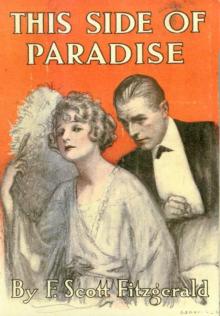 This Side of Paradise
This Side of Paradise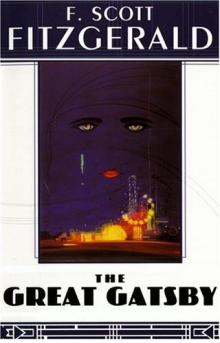 The Great Gatsby
The Great Gatsby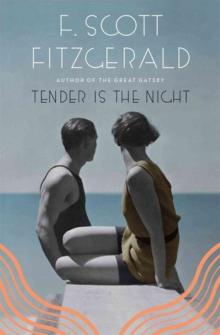 Tender Is the Night
Tender Is the Night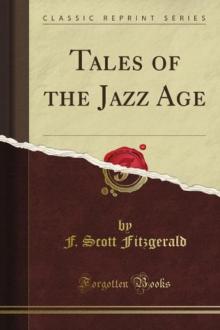 Tales of the Jazz Age (Classic Reprint)
Tales of the Jazz Age (Classic Reprint)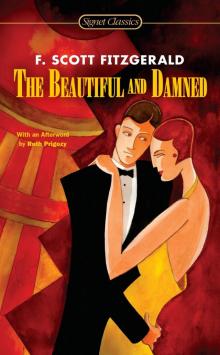 The Beautiful and Damned
The Beautiful and Damned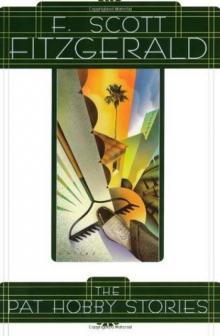 The Pat Hobby Stories
The Pat Hobby Stories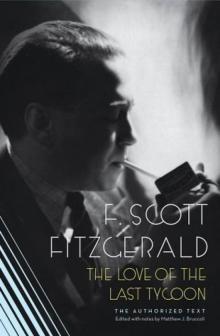 The Love of the Last Tycoon
The Love of the Last Tycoon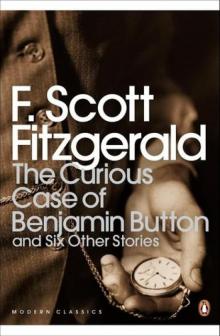 The Curious Case of Benjamin Button and Six Other Stories
The Curious Case of Benjamin Button and Six Other Stories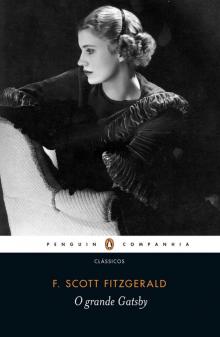 O Grande Gatsby (Penguin)
O Grande Gatsby (Penguin)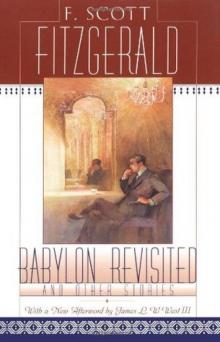 Babylon Revisited and Other Stories
Babylon Revisited and Other Stories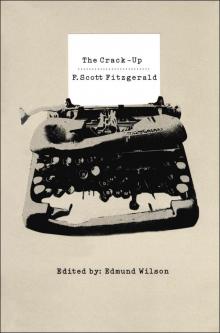 The Crack-Up
The Crack-Up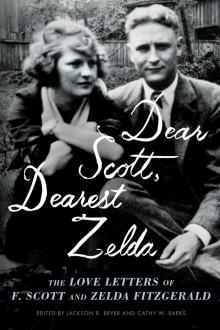 Dear Scott, Dearest Zelda
Dear Scott, Dearest Zelda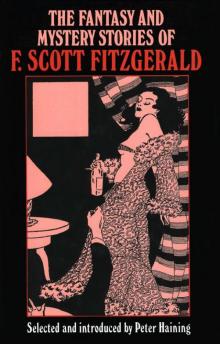 The Fantasy and Mystery Stories of F Scott Fitzgerald
The Fantasy and Mystery Stories of F Scott Fitzgerald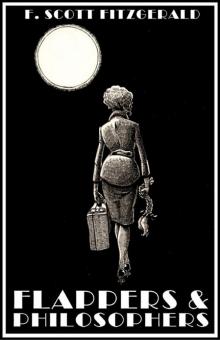 Flappers and Philosophers
Flappers and Philosophers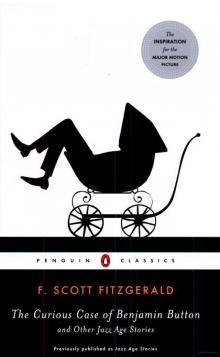 The Curious Case of Benjamin Button and Other Jazz Age Stories (Penguin Classics)
The Curious Case of Benjamin Button and Other Jazz Age Stories (Penguin Classics)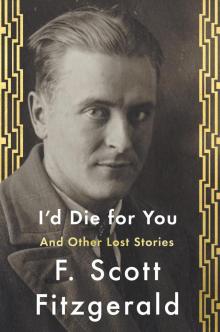 I'd Die For You
I'd Die For You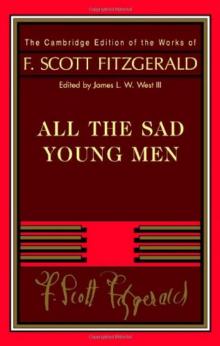 All the Sad Young Men
All the Sad Young Men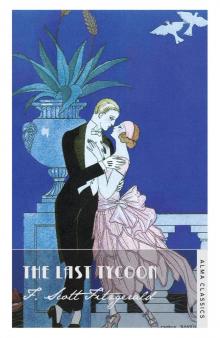 The Last Tycoon
The Last Tycoon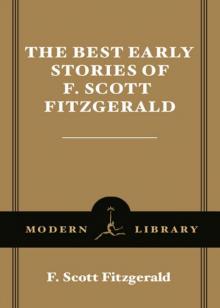 The Best Early Stories of F. Scott Fitzgerald
The Best Early Stories of F. Scott Fitzgerald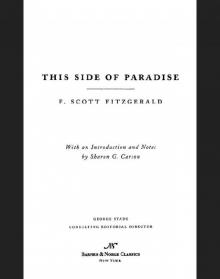 This Side of Paradise (Barnes & Noble Classics Series)
This Side of Paradise (Barnes & Noble Classics Series)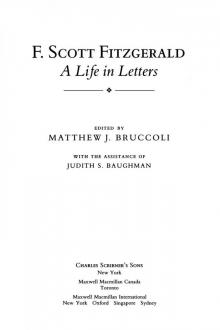 A Life in Letters
A Life in Letters Beautiful and Damned (Barnes & Noble Classics Series)
Beautiful and Damned (Barnes & Noble Classics Series)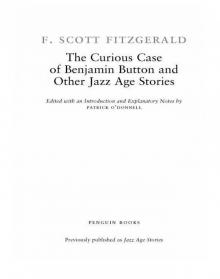 The Curious Case of Benjamin Button and Other Jazz Age Stories
The Curious Case of Benjamin Button and Other Jazz Age Stories Tales of the Jazz Age
Tales of the Jazz Age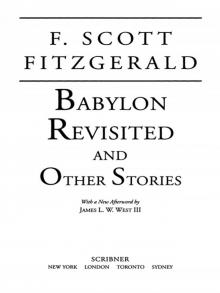 Babylon Revisited
Babylon Revisited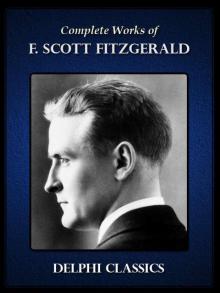 Complete Works of F. Scott Fitzgerald UK (Illustrated)
Complete Works of F. Scott Fitzgerald UK (Illustrated)